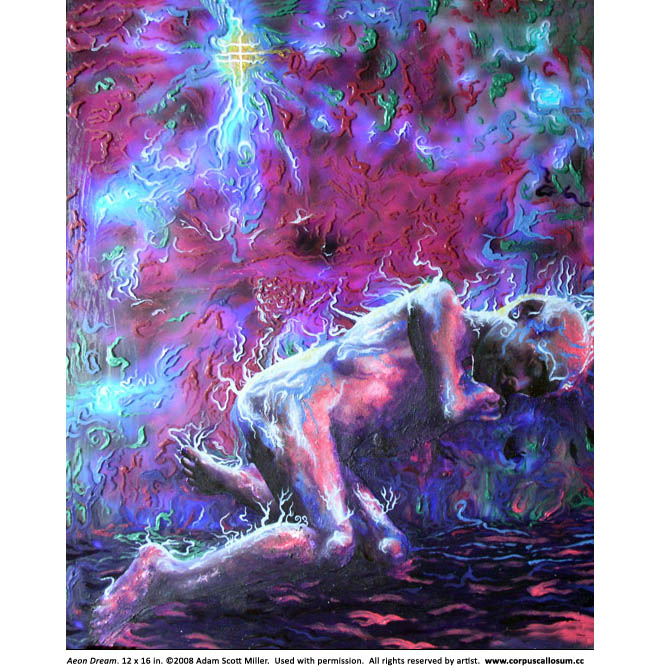Introduction to “H+: Transhumanism Answers Its Critics”
In The Global Spiral’s 2008 Special Issue on Transhumanism1, Guest Editor Hava Tirosh-Samuelson and five other authors, Ted Peters, Katherine Hayles, Don Ihde, Jean-Pierre Dupuy, and Andrew Pickering, provocatively relay their concerns about transhumanism to expectant ears. This responsive second Special Issue on Transhumanism is an opportunity for ten transhumanist authors to evaluate the criticisms and address concerns. This reflection is beneficial in helping us more precisely clarify interpretations of transhumanism and identify where our own words may have been mistaken.
The philosophical worldview and social movement of transhumanism has the benefit of existing while many of its pioneers are still living. This makes it more accommodating for those unfamiliar with transhumanism to investigate and argue its tenets with the most recent writings at hand. Rather than searching endless databases for bibliographical references and out-of-print books in gathering evidence of who did what, when, and where, researchers can easily locate people though Google and send an email or make a call. Why the authors of the “Special Issue on Transhumanism” in The Global Spiral did not do this is a curiosity. Nonetheless, their six essays present a much appreciated opportunity for developing discourse on transhumanism.

One of the repeated misconceptions about transhumanism is that the philosophical worldview and cultural or social movement of transhumanism were the brainchild of Julian Huxley. This misconception is both a qualifying association and a red herring. The misconception suggests that an association with Huxley provides a respectable authority and suggests that if Huxley believed in transhumanism, it must be a viable concept. This misconception also acts as a red herring by obfuscating a substantial bit of history wherein transhumanism was seeded, cultivated, and propagated in the late 1980s and early 1990s.
There are numerous forbearers of theories on human evolution and traces can be found in a plethora of sources, all suggesting that the biological human is not the final stage of evolution for the Homo sapiens sapiens. The philosophy and social/cultural movement of transhumanism has developed not only from the words “trans” and “human”, but also through an understanding that the human condition is one in which we might go outside to gain perspective, a process in becoming, an evolutionary transformation:
- “Trans-human” and the Italian verb “transumanare” or “transumanar” was used for the first time by Dante Alighieri in Divina Commedia.2 It means “go outside the human condition and perception” and in English could be “to transhumanate” or “to transhumanize”.
- T.S. Eliot wrote about the risks of the human journey in becoming illuminated as a “process by which the human is Transhumanised” in “The Cocktail Party”, Complete Poems and Plays: 1909-1950.3, 4 Julian Huxley wrote about how humans must establish a better environment for themselves, while still remaining man in New Bottles For New Wine, which contains the essay “Transhumanism”.5 Teilhard de Chardin wrote about intellectual and social evolution and ultra-humanity in The Future of Man.6 Abraham Maslow referred to transhumans in Toward a Psychology of Being.7
- The Reader’s Digest Great Encyclopedia Dictionary defined “transhuman” as meaning “surpassing; transcending; beyond”.8 The Webster’s New Universal Unabridged Dictionary9 defined “transhuman” as meaning “superhuman,” and “transhumanize,” as meaning “to elevate or transform to something beyond what is human”.
- F.M. Esfandiary wrote about transhuman as an evolutionary transition in “Transhumans 2000”.10 Robert Ettinger also referred to transhumanity in Man into Superman.11 Damien Broderick referenced transhumans in The Judas Mandala.12 I wrote the Transhuman Statement.13 FM-2030 wrote Are You A Transhuman?14
- Max More developed the philosophy of transhumanism in his essay “Transhumanism: Toward a Futurist Philosophy” (1990).
Throughout the 1990s and into 2009, philosophers, cognitive and neuroscientists and social scientists, biotechnologists and nanotechnologists, chemists, gerontologists, economists, researchers, designers, artists, authors of fiction and science fiction—scholar and student alike—have contributed to the further development of transhumanism. In this special issue of The Global Spiral titled, “H+: Transhumanism Answers Its Critics,” ten authors, whose backgrounds offer diverse knowledge of transhumanism, address one or more of the opinions of the collection of authors in The Global Spiral’s June 2008 “Special Issue on Transhumanism”. This February 2009 issue features:
“True Transhumanism” by Max More, Ph.D.
“Trite Truths About Technology: A Reply to Ted Peters” by Russell Blackford, Ph.D.
“Aubrey de Grey’s Declaration, Endorsed by 15 Prestigious Biomedical Experts” by Aubrey de Grey, Ph.D.
“Reproductive Choices: The Glorious Landscape of Assisted Reproductive Technology” by Amara Graps, Ph.D.
“In Defense of Posthuman Dignity” by Nick Bostrom, Ph.D.
“Bringing Arts/Sciences and Design Into the Discussion of Transhumanism” by Natasha Vita-More, Ph.D. candidate
“Transhumanism: Threat or Menace? A Response to Andrew Pickering” by Michael LaTorra
“From Mind Loading to Mind Cloning – Gene to Meme to Beme: A Perspective on the Nature of Humanity” by Martine Rothblatt, Ph.D.
“Conceptualizing Future Identities” by Sky Marsen, Ph.D.
“Ship of Fools: Why Transhumanism is the Best Bet to Prevent the Extinction of Civilization” by Mark Walker, Ph.D.
Endnotes
1 Special Issue on Transhumanism (2008) In The Global Spiral, (Guest Editor, Hava Tirosh-Samuelson), Vol. 6, Issue 3. Available https://www.metanexus.net/magazine/PastIssues/tabid/126/Default.aspx#27
2 Dante, Alighieri. (1308-1321) The Divine Comedy (The Inferno, The Purgatorio, and The Paradiso) (Ed. Ciardi, J.) New York: NAL Trade, 2003. (p. 586-589).
3 Eliot, T.S. (1952) Complete Poems and Plays: 1909-1950. The Cocktail Party. New York: Harcourt. (p. 147).
5 Huxley, Julian. (1957) “TRANSHUMANISM” In New Bottles for New Wine: Essays. London: Chatto & Windus.
7 Maslow, Abraham. (1962) Toward a Psychology of Being. (2nd. Ed. 1968, New York: John Wiley & Sons (p x1).


